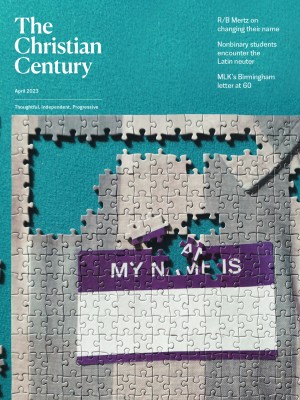April 23, Easter 3A (Luke 24:13-35)
When the disciples encounter the risen Christ, they feel it in their bodies.
I have a friend who is trying very hard to teach her preteen children intuitive eating. “Listen to your bodies,” she will say. “Are you actually hungry, or are you just bored?”
Her tweens, true to their phase of childhood development, are enjoying antagonizing their mother. Mom’s reading parenting books again! Now we need to listen to our bodies, ugh.
I try to point out that they are incredibly lucky to have parents who will not force them to finish their plates, make them eat yucky mushrooms, or put them on diets. Listening to their bodies and eating with kindness are just some of the many precious gifts given to this next generation.
I am struck by the phrase the disciples exclaim to each other upon realizing that Christ is among them. “Were not our hearts burning within us while he talked with us on the road and opened the scriptures to us?” It is a sentence that could be read in metaphysical, strictly spiritual terms. The Emmaus story is often told as an example of scriptural illumination, of the opening of the mind, of spiritual revelation through teaching and discussion. But it also is a story of people who rely on their bodies’ signals to confirm a truth, and an unlikely one at that: the resurrection of their Lord. The disciples listen to their bodies.
Read our latest issue or browse back issues.
When we refer to being “heartbroken” or “heart-struck” or when we say our “hearts skipped a beat,” we know these expressions are deeply emotional in nature, and yet they evoke something physical as well. A “gut feeling” is similar: the spirit and body are intertwined in the experience.
The disciples, on the road to Emmaus, are living out their Easter Day in this weaving of spirit and body. The entire story is steeped in the physical and sensory: the long walk, the burning of their hearts, the touching and breaking of the bread, and the narrative twist of recognition when “their eyes were opened” before Jesus disappears from sight. Interestingly, one of the first things Cleopas and his companion say to the stranger on the road is that the women went to the tomb early that morning but did not find a body. They are downcast and anxious at the start of their journey. A story that starts in a sense of loss and confusion around a body is then brought into a spirit of joy and revelation through and in the body. Their mealtime, this most human and physical of experiences, reveals Christ’s presence, and their burning hearts become the telltale sign.
As I gain years in my own body, I am more and more convinced of the importance of this gift of body that God has given us. Our world so often disdains and oppresses our physical bodies. The gift of God made flesh sharply critiques this.
The resurrection stories engage with this gift in so many significant ways: not simply in Jesus’ body—scarred, breathing, hungry, and at times unrecognizable—but also in the bodies of those around him. They are invited to place their hands on his wounds, to break bread with him, and to sit with him. They are the companions of Easter, through sight, touch, and taste. This act of incarnation—God made flesh, existing and walking as one of us—lives on in the hope and the revelation of the resurrection. Flesh, with its wounds, fatigue, hunger, breath, and intimacy, is honored and celebrated. This is a lesson not only of intellectual understanding or of spiritual awareness but of embodied action—of “body[ing] forth his Heaven,” as poet Malcolm Guite puts it.
Bodying forth his heaven is one of the resurrection practices of the disciples. This thread of stories shows the deepening of understanding around Christ’s ministry, life, and death—and also the embodiment of belief. Cleopas and the other disciple return immediately to Jerusalem, despite having walked all day, to tell the others what they experienced. They are bodying forth his heaven. Further passages indicate physical proximity to Christ, and to each other, as signs of doing this as well. The lived practices of mercy, healing, feeding, and praise are the early church’s expressed efforts to body forth his heaven. As we move later into our Easter season, we can try to do the same.






